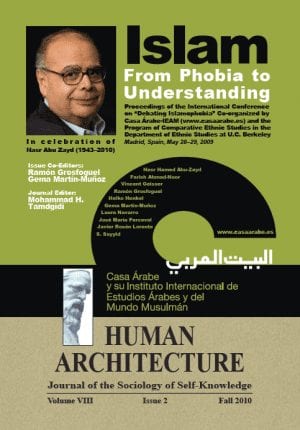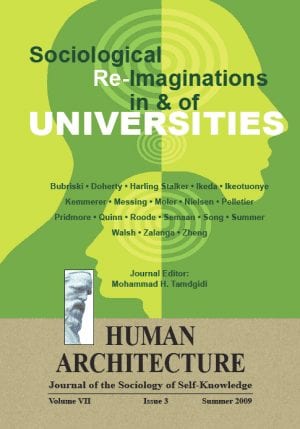Journal Article — Unconscious Islamophobia — by Gema Martín-Muñoz
$15.00
Our historical relationship with Islam has accumulated a whole series of negative perceptions dominated by prejudices and stereotypes. We have internalized a reductionist and monolithic image of “us” and of “them” (the two “cultures”). It is as if these were closed universes in which millions of human beings are designated as “Western” or “Muslims” and represent alien and even antagonistic cultures.
Description
Abstract
Our historical relationship with Islam has accumulated a whole series of negative perceptions dominated by prejudices and stereotypes. We have internalized a reductionist and monolithic image of “us” and of “them” (the two “cultures”). It is as if these were closed universes in which millions of human beings are designated as “Western” or “Muslims” and represent alien and even antagonistic cultures. This concept of “cultures” in relations between the Muslim world and “us” is a product of a Western construct in which “Islam” and therefore all individuals within Islam are fictitiously represented, labelled ideologically as a dominant global force, in a way that portrays the behaviour and culture of that enormous mass of people as a uniform entity. They all are One, and the great variety of this immense geographical area is ignored. This One is perceived as alien, separate and with no values in common with us, inferior and dominated by fanaticism, fundamentalism and irrationality. The combination of hostility and reductionism that feeds this reconstructed vision of a threatening, backward and violent homus islamicus turns Muslims into people requiring therapeutic or punitive interventions. Overall, this illustrates that the problem of anti-Muslim behaviour, due to intolerance towards citizens who follow Islam, has grown in importance, and people must be made aware of its existence and the need to take measures and actions to contain and prevent it. However, defining Islamophobia requires its existence to be politically and socially acknowledged, and this is clearly not the case today. This debate is ongoing and rational and empirical criteria must be sought to define this phenomenon in accordance with international standards on racism and intolerance.
Recommended Citation
Martín-Muñoz, Gema. 2010. “Unconscious Islamophobia.” Pp. 21-28 in Islam: From Phobia to Understanding (Human Architecture: Journal of the Sociology of Self-Knowledge: Volume VIII, Issue 2, 2010.) Belmont, MA: Okcir Press (an imprint of Ahead Publishing House).
The various editions of Islam: From Phobia to Understanding can be ordered from the Okcir Store and are also available for ordering from all major online bookstores worldwide (such as Amazon, Barnes&Noble, and others).
Read the Above Publication Online
To read the above publication online, you need to be logged in as an OKCIR Library member with a valid access. In that case just click on the large PDF icon below to access the publication. Make sure you refresh your browser page after logging in.







